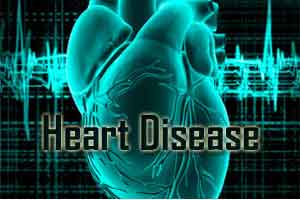- Home
- Editorial
- News
- Practice Guidelines
- Anesthesiology Guidelines
- Cancer Guidelines
- Cardiac Sciences Guidelines
- Critical Care Guidelines
- Dentistry Guidelines
- Dermatology Guidelines
- Diabetes and Endo Guidelines
- Diagnostics Guidelines
- ENT Guidelines
- Featured Practice Guidelines
- Gastroenterology Guidelines
- Geriatrics Guidelines
- Medicine Guidelines
- Nephrology Guidelines
- Neurosciences Guidelines
- Obs and Gynae Guidelines
- Ophthalmology Guidelines
- Orthopaedics Guidelines
- Paediatrics Guidelines
- Psychiatry Guidelines
- Pulmonology Guidelines
- Radiology Guidelines
- Surgery Guidelines
- Urology Guidelines
Mediterranean diet better than statins for tackling heart disease

London : Heart disease is better treated with a Mediterranean style diet than cholesterol-lowering drugs, it has been claimed.
A study found those who had a diet rich in vegetables, nuts, fish and oils were a third less likely to die early, compared with those who ate larger quantities of red meat, such as beef, and butter.
“What happens to people who have already suffered from cardiovascular disease? Is the Mediterranean diet optimal for them too?”
The study followed 1,200 people with a history of heart attacks, strokes and blocked arteries over seven years. During that time, 208 patients died but the closer people were to an ideal Mediterranean diet the less likely they were to be among the fatalities.
The conference was told those who ate mainly along Mediterranean lines were 37% less likely to die during the study than those who were furthest from this dietary pattern, after adjusting for age, sex, class, exercise and other habits.
Previously, cholesterol-lowering drugs such as statins were believed to be the most effective method of combating heart disease, the leading cause of death in the UK.
Statins, which are among the world’s besselling prescription drugs, are said to help reduce major heart problems by around 24%. They are the most widely prescribed drugs in the UK, with at least 7 million users costing the NHS £285m a year.
According to the latest figures from the British Heart Foundation, cardiovascular disease causes more than a quarter (27%) of all deaths in the UK around 155,000 deaths each year an average of 425 people each day or one death every three minutes.
Sir David Nicholson, former chief executive of the NHS, entered the debate over statins in July when he said he had stopped taking them as part of his medication for diabetes. “If a lifestyle change works then why would you take the statin? The trouble is that they give you a statin straightaway, so you don’t know what is working,” he said.

Disclaimer: This site is primarily intended for healthcare professionals. Any content/information on this website does not replace the advice of medical and/or health professionals and should not be construed as medical/diagnostic advice/endorsement or prescription. Use of this site is subject to our terms of use, privacy policy, advertisement policy. © 2020 Minerva Medical Treatment Pvt Ltd